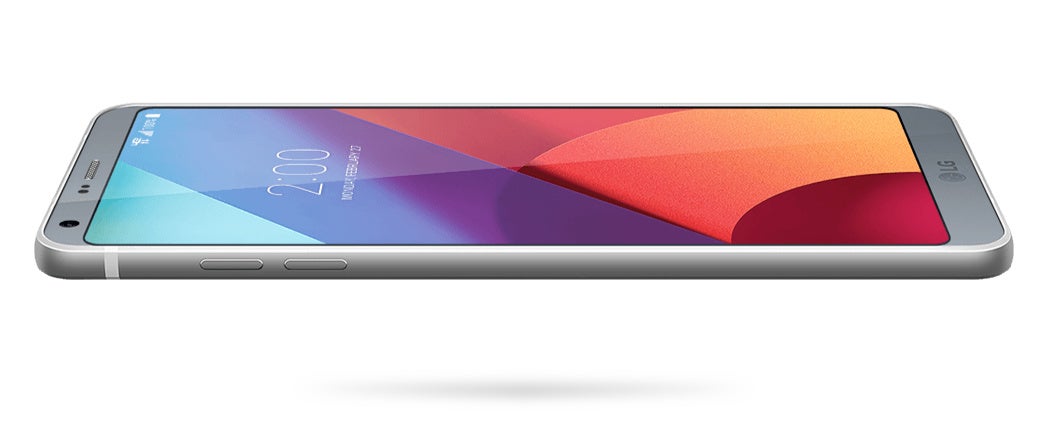LG G6 vs iPhone 7 vs Galaxy S7 vs Google Pixel vs Huawei P10: performance benchmarks comparison

LG claims that using the Snapdragon 821 with some optimizations as the system chip for the LG G6 is a 'brilliant move', despite the fact that the upcoming Samsung Galaxy S8, for instance, is expected to ship with a chip that will be newer and more powerful, the Snapdragon 835.
Why does the company think so? LG says that it has been able to move the chip to a new place on the LG G6, so that the processor does not heat up that much and that it was able to achieve some better cooling to get the maximum out of the Snapdragon 821.
Well, when it comes to processor performance, we don't just believe words: we look at performance benchmarks that give us an accurate measure of that performance. There is the real-life experience, of course, but that comes over the long-term. Right now, we have the LG G6 in our hands and we have run the most demanding benchmarks to see how it performs. We also have the results from the newest Huawei P10 that rocks the company's own Kirin 960 system chip, and we have three key flagships: the iPhone 7 with Apple's A10 chip, the Galaxy S7 Edge and the Google Pixel that also features the Snapdragon 821 chip. Let's see how they compare.
NOTE: Please note that the G6 unit used in this comparison doesn't run final software, so results with a retail unit may vary slightly.
First, we look at the AnTuTu score results. AnTuTu is great: it gives a single result that you can easily see and get an instant understanding of whether a device is good or not. And here is what you see right away: the G6 scores about on par with the Google Pixel, but it's not as fast and powerful as the iPhone 7. In fact, there is a nearly 18% difference between the two, which is quite significant. The Galaxy S7 Edge with the older Snapdragon 820 chip is further behind, while the Huawei P10 is last with a score slightly below that of the S7 Edge.
What is AnTuTu and what does it do? It is a multi-layered, comprehensive mobile benchmark app that assesses various aspects of a device, including CPU, GPU, RAM, I/O, and UX performance. A higher score means an overall faster device.
Next up, we dive deeper in the CPU performance part with GeekBench. We can see that LG has in fact managed to squeeze out some improvements in the single core performance area over the Google Pixel, while in multi-core performance the two are on the same level. Still, it's clear that no phone can match the single core performance of Apple's iPhone, which currently holds nearly double the score of others. The mulitple cores used in various chip match it in multi-core performance, though, as you can see.
We also look at the Vellamo benchmark for processor performance, and what it gives us is a different take on the same problems. You can see that in this benchmark we only have Android phones and the results are closer, meaning that in certain tasks these different processors all match up.
As to Vellamo itself, it is a multi-layered, comprehensive mobile benchmark app that assesses various aspects of a device, including web browser performance, multi-core performance, and single core speed. A higher score is better.
Finally, we have two GPU benchmark tests. GPUs are crucial for graphics intense applications and games. So is the LG G6 a good phone for gamers? Well, not really. Looking at the results, one can see that LG is consistently at the last place with on-screen results. This will be a problem with more demanding games in the future.
As to the benchmarks themselves, we have the T-Rex HD component of GFXBench that is demanding and then the Manhattan test is downright gruelling. It's a GPU-centric test that simulates an extremely graphically intensive gaming environment that is meant to push the GPU to the max. that simulates a graphically-intensive gaming environment on the screen. The results achieved are measured in frames per second, with more frames being better.
Finally, we can also see a different GPU test that again proves that the LG G6 has some catching up to do in terms of GPU performance. The test we look at here is Basemark OS II, a multi-layered, comprehensive mobile benchmark app that assesses various aspects of a device, including system, memory, graphics, web browsing, and camera performance.
Conclusions
At the end of the day, the LG G6 performs well in some areas, and not so good in others. It's on par with the Google Pixel, which is the world's smoothest-running Android phone, and the LG has more CPU firepower, but will it have the same level of meticulous software optimization? And when it comes to GPU performance, the LG G6 is a bit of a loser in the flagship space, way behind even the one-year-old Samsung Galaxy S7 Edge.
Real-life will tell us how much those benchmarks translate in the actual usage, but so far, this is what we have.










Things that are NOT allowed: